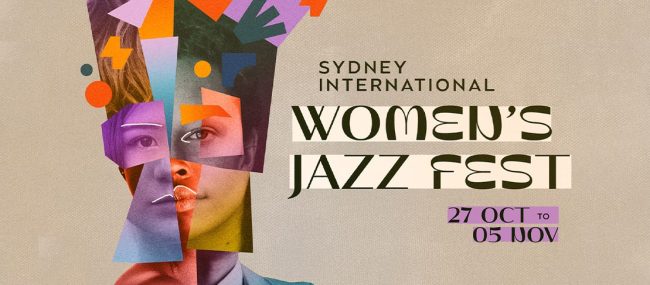KAMASI WASHINGTON’S THRILLING SYDNEY DEBUT
Wednesday 23 March 2016 The Metro, George St Sydney
Review by Paris Pompor / Photos by Tom Carolan & Kimberly Crofts
Going on tonight’s performance, “warming up” is presumably a foreign concept to Los Angeles born and bred saxophonist Kamasi Washington and his fiery band of life-long friends. Without fanfare, the caped and tunic-clad tenor player arrived on stage leading his group straight in to the kind of tune most jazz ensembles save for a finale or encore. Then with no warning and just three minutes into the show, double bassist Miles Mosley delivered a jaw-dropping solo that drew audible gasps from those around me and the first of many enthusiastic surges from the considerable crowd. Like giant spiders on the run from a can of Mortein, Mosley’s hands manically scurried up and down the fingerboard. That was impressive enough. Then without missing a beat he switched to attacking the upright with a bow and produced the kind of tones normally associated with a Hendrix outburst.
Any fears the band had peaked too early, were soon quelled and like many of tonight’s solos, conventional notions of build-climax-release were flung out the window to the far reaches of the cosmos. One standout case in point was keyboardist Brandon Coleman’s freaky finger workout in The Spaceship Is Leaving, from his 1995 LP Self Taught. On record it’s three minutes of vocoderised fuzz-funk. Tonight, we were treated to a full tour of the galaxy, Coleman the centre of attention for a protracted, multi-chapter solo that saw him leap from his seat to attack the usually dreaded keytar. The strap on synthesizer has rarely sounded quite this good live and the sturdy Coleman has even mastered not looking silly while playing one. Elsewhere, it was Coleman’s inventive “textures” (as Washington dubbed them) that gave much of the set a modern sheen.

The only solo that went too long for these ears, was the one between the band’s two, otherwise locked-groove, drummers. As impressive as they both are, minus music, introduced as a stand-alone piece rather than emerging organically from within a song, and with little in the way of a comprehensible trajectory, it was more like watching to virtuosos practising different rhythms and trick fills in the same room. Marvellous dexterity, but emotionally disengaging, a small criticism that certainly couldn’t be levelled at any other piece from the setlist. In contrast were moving, lively renditions of The Magnificent Seven, tonight’s stunning closing tune The Rhythm Changes and one of many highlights, Malcolm’s Theme. The latter (which features Ossie Davis’ 1965 Malcolm X eulogy set to music) is a haunting and passionate tune from Washington’s latest album The Epic. This evening it took on a renewed fervency punctuated by Black-Power salutes from vocalist Patrice Quinn on the recurring “Afro-American” declaration.
Generous – and surprisingly funny during his player introductions and track forewords – Washington allowed his fellow players to take much of the limelight, also playing songs from their solo albums and giving them plenty of space to stretch out. The renowned intensity of his own tenor outbursts were limited to just a handful of tunes. Even at the time of ticket purchase, it was clear The Metro was not an ideal choice of venue, a fact confirmed by tonight’s minor sound issues. In one tune it was difficult to distinguish Patrice Quinn’s voice when she beautifully and wordlessly harmonised with the horns, while on the elevated mid levels of the venue the mix felt somewhat harsh and trebly. It was therefore hard not to imagine in the post-show afterglow how much more thrilling this concert would have been if experienced at Circular Quay’s Basement in September last year before issues with Soulfest caused Washington’s earlier Sydney appearance to be cancelled.

It’s safe to assume Washington’s 174-minute, three-suite LP The Epic is what drew such a big crowd to this jazz gig, given the praise the record continues to gather and the fact his earlier albums as band leader are scarce. That’s encouraging in itself, but to see that at least half of those in attendance appeared to be under 35, is better still. Certainly some were also drawn to attend due to Washington’s earlier Soulfest booking and his association with contemporary names like Flying Lotus (also the manager of his record label Brainfeeder), Kendrick Lamar (whose album To Pimp A Butterfly he played on) and lifelong friend Thundercat whose younger brother Ronald Bruner was one of the drummers in the nine strong line-up Kamasi assembled for this debut Australian tour. Also included in the line-up was Washington’s father Rickey, drummer Tony Austin and trombonist Ryan Porter. So engaging were the players, that the soaring 14-part choral harmonies or string orchestrations from The Epic were barely missed, but if I was a gambler I’d put on money on Washington returning soon for either a major arts festival or a Sydney Opera House-type show with the full shebang. If there were any curators with decent budgets present, tonight would certainly have impressed them.

